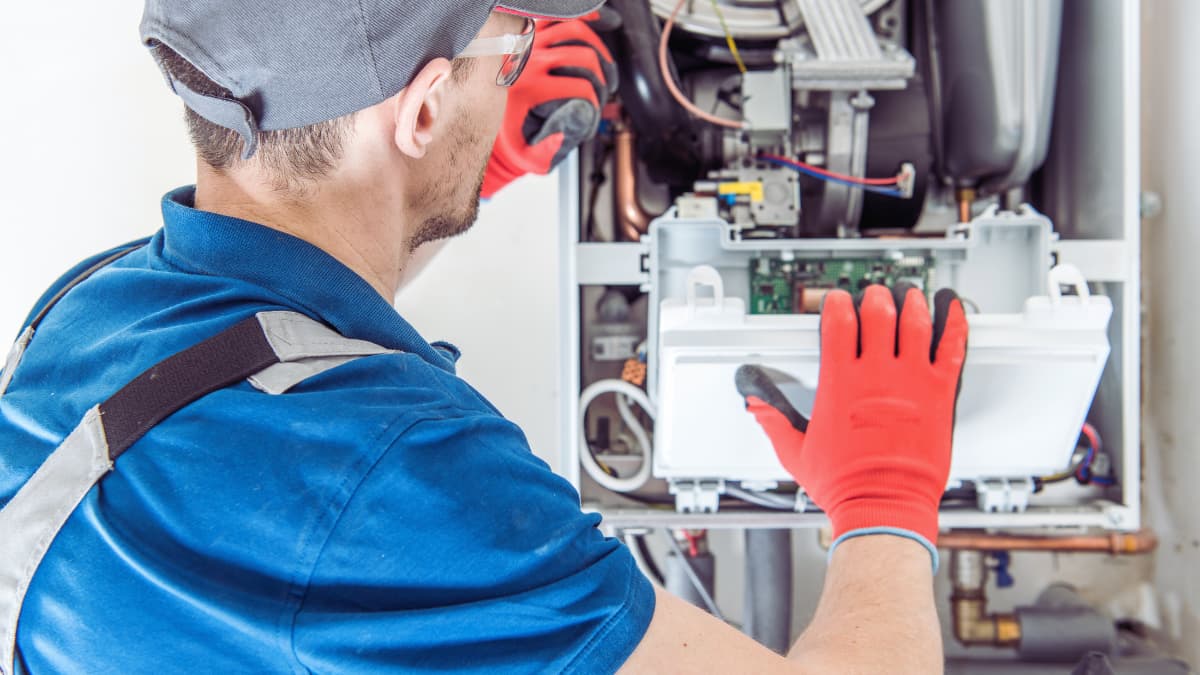Gas engineers remain an essential part of everyday life in the UK. From heating homes to keeping businesses safe, they work behind the scenes to ensure systems are installed, serviced, and repaired to the highest safety standards.
As we move further into a low-carbon future, many people are asking where gas engineers fit into that picture. The truth is that, in 2025, this remains a strong and stable trade to enter, with modern training routes and new opportunities to advance your career.
Whether you’re leaving school, changing direction, or building on existing experience, now is a great time to begin your journey.
The Outlook For Gas Engineers In 2025
Gas work remains one of the most in-demand trades nationwide. Thousands of homes and buildings still rely on gas for heating, hot water and cooking. Engineers are needed not just to install systems but to carry out regular servicing and safety checks.
At the same time, new technologies are arriving. Hydrogen-ready boilers, hybrid heating systems and off-grid setups using LPG are all creating space for engineers to develop additional skills. The push towards energy efficiency has increased the value of qualified, safety-conscious workers.
If you are willing to train and stay up-to-date with modern systems, you can build a reliable, well-paid career with plenty of flexibility.
Training Routes Available In 2025
There are two main training routes into gas engineering in 2025, both of which are designed to prepare learners for the current demands of the job.
Gas Managed Learning Programme (MLP)
The Gas MLP is ideal for those starting fresh, whether you have some trade experience or none at all. This course builds knowledge from the ground up, providing a solid foundation in domestic gas work.
Delivered at our training centre in Stafford, the programme includes classroom instruction, practical sessions, and a period of supervised work experience. During the course, you will learn the main elements of gas safety, combustion, pipework, appliance installation and fault finding.
All learners also build a digital portfolio as they carry out real-world experience under a registered mentor. This forms part of your final assessment and proves you are ready to move forward.
Once you complete the programme, you will be eligible to sit the ACS assessment. Passing this allows you to apply for Gas Safe registration and begin working legally in the UK.
Level 3 Apprenticeship In Gas Engineering
This route is well-suited to those looking to earn while they learn. The gas apprenticeship lasts approximately 18 months and combines hands-on employment with structured learning, delivered in partnership with Logical Training.
You will gain workplace experience, study key theory topics and be supported through to the ACS qualification. It is a popular option for school leavers or those already working in a trade environment.
Both routes are recognised and designed to meet current industry standards. We’re happy to help you choose the one that best suits your situation.
Training, Assessment and Support In Practice
Training in 2025 has never been more flexible or better supported. At Staffordshire Training Services, we focus on providing clear and confident pathways that prepare learners for real-world jobs.
Courses are delivered in small groups at our purpose-built centre in Stafford, using modern tools and realistic training setups. You will receive structured teaching on core topics, take part in practical sessions, and be supported with learning materials.
As you progress through your gas training course, you will complete regular assessments to gauge your understanding and prepare for the final test. Support is available throughout from experienced tutors who know the trade first-hand.
Work experience placements play a vital role in your learning. During this time, you will gather evidence of your skills and build a portfolio that shows your ability to work safely and competently in live settings.
Safety Training Built Into Every Step
Safety is at the heart of every gas course we deliver. All learners are trained to follow the current UK Gas Safety (Installation and Use) Regulations and are expected to meet high standards of care, accuracy and professionalism.
From the very first day, our courses cover the safety requirements of:
- Combustion and ventilation
- Appliance servicing
- Flue systems and carbon monoxide awareness
- Pressure testing and tightness checks
- Correct use of personal protective equipment (PPE)
This training prepares you not only for your assessments but for the daily expectations of employers and customers once you are working.
Support From Staffordshire Training Services In 2025
At Staffordshire Training Services, we are committed to giving learners every opportunity to succeed. Our courses are led by qualified engineers with real-world experience and a genuine focus on helping you build confidence and competence.
We offer:
- A well-equipped training centre in Stafford
- Flexible start dates and small class sizes
- Hands-on guidance throughout the course
- Help with finding supervised work placements
- Clear information on funding, course costs and payment plans
- Ongoing support as you prepare for ACS and Gas Safe registration
Whether you are entirely new to the trade or looking to retrain, you will find a supportive, practical environment where your goals are taken seriously.
Gas engineering remains a respected and valued trade in 2025. With the proper training and support, you can build a long-term career that offers real job security, strong earnings, and the satisfaction of doing skilled work that makes a difference.
Related Articles
- Career as a Gas Engineer
- Start Training As a Gas Engineer
- Is Gas Engineer Career Still Worth It
- Salary Expectations for Plumbers and Gas Engineers in 2026
- Your First Year as a Gas Engineer: What to Expect
Prefer an AI Summary?



